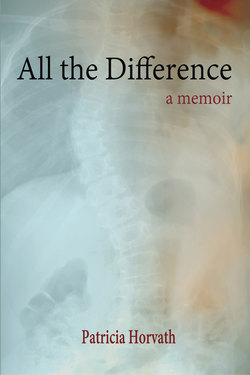Читать книгу All the Difference - Patricia Horvath - Страница 12
На сайте Литреса книга снята с продажи.
ОглавлениеTestifying
I moved to New York during the first year of the new century, a boom time, though my neighborhood, Central Harlem, was not yet booming.
The sales office for my building was a double wide trailer parked on West 116th Street. The marketing director, a formidable woman with a crown of coiled braids, referred to me as her “queen.” As in: “And how is my queen today?” Like the other women in the office she was overtly religious, and on the day I signed the purchase and sale agreement for my unit, a Sunday, she celebrated by inviting me into the office staff’s prayer circle. I stood between her and the accountant in a group of a dozen or so praying, swaying women, all of us holding hands. Some of the women “testified”—about struggles overcome, family members who needed help, a son in prison, a daughter with an addiction, a diploma recently achieved, people who needed prayers of supplication or thanks. I didn’t know the words to the prayers and I had no inclination to testify, but I felt moved to be included in this circle, to have crossed some invisible barrier from client to communicant. When it was my turn to give thanks, I said simply, I’m so happy to be here.
Across the street from my new building were two vacant lots heaped with demolished car parts that glittered in the sun. The lone neighborhood supermarket had brown lettuce, sawdust-strewn floors, gangsta rap. There were abandoned buildings on both sides of every block. Crack vials crunched underfoot; I had to pay attention whenever I wore sandals. But my apartment was large and sunny, and every day, weather permitting, I went for a walk in Central Park.
I had only to read the paper to be reminded, starkly, of how my neighborhood differed from New York below 110th Street. There, people ate gold-flecked desserts in celebrity restaurants. Hermès kept a waiting list for five-figure Birkin bags. A famous woman with a famous father backed her Mercedes SUV into a crowd of people milling about a Hamptons nightclub while screaming “Fuck you, white trash!”
I’d known about the excess before moving, of course. Still, the contrast between where and how I lived and the antics taking place to the south was jarring. One day, I no longer recall where, I read an article about a couple who had plastic surgery and liked the results so much that they decided to have their children undergo the process, too, “So we’ll look more like a family.”
I’d been diagnosed with osteoporosis only a few months earlier, and it occurred to me that this was a serviceable metaphor for the creative person in the consumerist vortex that was twenty-first century Manhattan. So I wrote a story in which a woman, a poet, is shrinking so rapidly that she has to carry a milk crate to stand on. When she disappears entirely, no one notices.
The story, being somewhat heavy-handed, didn’t really work. It was funny, but tainted by bitterness. I knew that. Still, I showed it to some colleagues in my writing group, who asked me about the piece’s genesis.
So I told them. About my osteoporosis and then, haltingly, about its precursor, scoliosis, the years I’d worn back braces and body casts, my spinal fusion at age fifteen, the difficulty I’d had re-learning how to walk, the even greater difficulty of learning to see myself as “able-bodied.”
I’d known these women for years. We’d gone to grad school together, had met every Thursday night for dinner and workshops, and had stayed in touch when school ended.
They were astonished. We had no idea, they said. Why didn’t you ever tell us?
It doesn’t seem important anymore. Even as I said this, I knew it was a lie, a way of distancing myself from the house of cards I still felt my body to be.
That’s the story you need to write. They were adamant and unanimous.
I didn’t want to listen. These women, my confidantes, were urging me to open a door I’d nailed shut. No, I thought, I’ll never write that; it’s nothing I want to revisit.
But I knew they were right. Without vexation, another word for conflict, there’s no story. I’d held back for so long, erased so many years. Difficult as it might prove, maybe writing would be a way to reclaim them. The next day I began.
